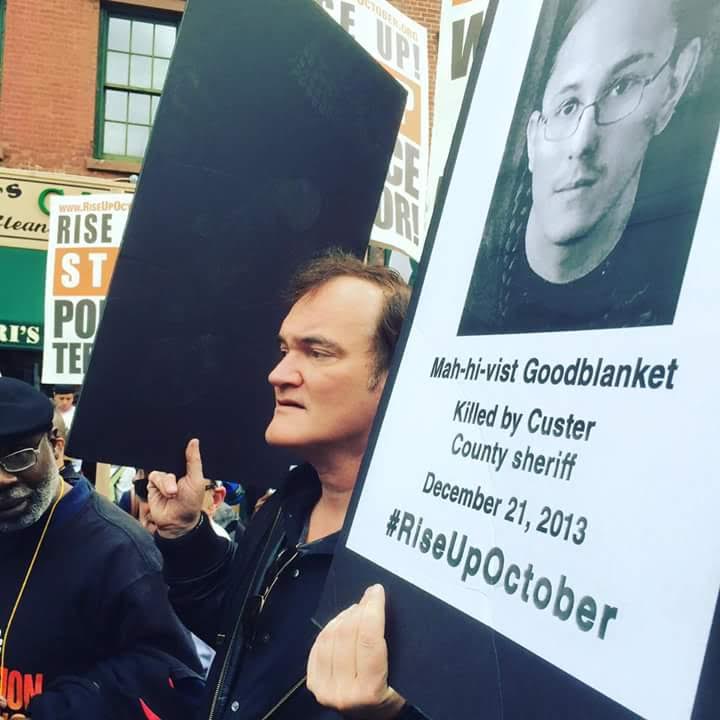Amiyonette Goodblanket strives to bring awareness about police brutality in the Native American community
Student leader spotlight
November 27, 2015
It’s been two years since senior Amiyonette Goodblanket got the chance to see her brother, Mah-Hi-Vist, whose name means Red Bird, after his death at the hands of police officers in Oklahoma.
Goodblacket and her family hail from the Cheyenne and Arapaho tribe based out of Oklahoma. Due to the split of her parents, Goodblanket spent time back and forth between California, where she lives with her mother and Oklahoma where her father and late brother lived.
She described her brother, who was 18 at the time of his death, as possessing characteristics of that of a Native American, remembering him as being a “tall, Native boy” at 6 foot 7 inches.
Goodblanket also remembered her brother as always having anger issues, but in spite of that he was “a good kid.” On the night of the shooting, she said that her family wanted to get help for her brother because he had got upset, so they called the cops.
There were multiple stories as to what actually happened; the cops said that Goodblanket’s brother had attacked them and that he was “throwing knives” at them, but Mah-Hi-Vist’s girlfriend said that he was calming down and at their home there was no evidence that attests to the cops’ claims.
The call for help turned into a nightmare when the cops took matters into their hands when they opted to open fire on an unarmed boy.
Goodblanket said that the cops involved shot her brother at least six times.
“After they shot him, the ambulance didn’t come for him until half an hour later and they still handcuffed him and bagged his hands when he was already gone,” said Goodblanket.
The main cops involved in the shooting were later rewarded with medals and such for their “bravery.”
After this devastating incident, Goodblanket said that she reached out to Nancy Grace, Anderson Cooper and others in hopes of getting the story out about her brother’s death, but never received a response.
“In my letter to Nancy Grace I was saying, ‘I’ve never seen a Native featured on your show. You stand up for those that are unable to stand up for themselves, but I’ve never seen Natives featured.’
“In any story that’s been about my brother, it’s only been in Native newspapers; never in mainstream media newspapers,” said Goodblanket.
Ever since the incident, Goodblanket said that her family has been tirelessly trying to gain justice for Mah-Hi-Vist and they won’t stop until justice is served.
“I think it would impact my family because we’d be able to find justice for my brother, but it would also open the doors for other Native families and other Native communities and have them realize that if we stand together, fight for what we believe in and fight for justice, we’d be able to do that.”
It has been a difficult two years for Goodblanket as she was very close to her brother. She said that if she could get a moment back with Mah-Hi-Vist, she would focus on the little things.
“I always wanted to fly him out to California because they don’t have an ocean out there. He could go to the beach and Disneyland and those types of things. I would [have liked] for him to come to my house and see the lifestyle here and how it’s different from Oklahoma,” said Goodblanket. “I miss the little things, I would spend time with him and enjoy each other’s company.”
As for the cops who ended a boy’s life too soon, Goodblanket says that she would question their motives from the night of the shooting.
“First and foremost, I would ask why, what they thought was actually happening, do they regret it, do they think they were justified in that?” she said.
That feeling of peace and knowing that Mah-Hi-Vist is safe is a feeling that the Goodblanket family will never feel again.


